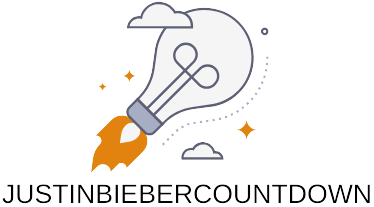Table of Contents
ToggleEver wonder why some people seem to bounce back from setbacks while others wallow in self-pity? It all boils down to mindset. Think of it as the invisible engine that drives behavior, shapes decisions, and ultimately determines success. Whether it’s a growth mindset that embraces challenges or a fixed mindset that prefers the comfort of the status quo, understanding these types could be the game-changer you didn’t know you needed.
In a world where Netflix binges and cat videos reign supreme, it’s easy to overlook the power of mindset. But don’t be fooled! The right mindset can turn obstacles into stepping stones and failures into funny stories to tell at parties. So buckle up as we dive into the fascinating realm of mindsets. You might just find the secret sauce to transform your life and maybe even impress your friends with your newfound wisdom.
Understanding Mindsets
Understanding mindsets involves recognizing how thoughts shape responses to experiences. Mindsets influence behavior and attitudes. A growth mindset embraces challenges, viewing them as opportunities for development. In contrast, a fixed mindset sees challenges as threats, leading to avoidance.
Research highlights that individuals with a growth mindset achieve higher levels of success. They tend to learn from feedback and persist through difficulties. A fixed mindset may limit potential, as individuals become discouraged by failure. Expressing creativity and innovation often flourishes in those who adopt a growth mindset.
Mindsets can shift based on experiences and environment. Surrounding oneself with supportive people can promote a growth mindset. Engaging in activities that challenge skills helps reinforce this perspective. Observing others succeed despite setbacks often inspires others to adopt similar attitudes.
Awareness plays a crucial role in mindset development. Identifying whether one leans toward a growth or fixed mindset leads to personal insights. This awareness encourages proactive change and fosters resilience. Mindset transformation isn’t immediate; it requires continuous effort and practice.
Practices such as journaling can assist in shifting mindsets. Reflecting on accomplishments and learning moments strengthens a growth-oriented approach. Seeking mentorship can also provide external perspectives that enhance growth. Embracing a positive mindset consistently builds confidence and fuels ambition, paving the way for future success.
Fixed Mindset

The fixed mindset limits personal potential and growth. Individuals with this mindset often perceive their abilities as static and unchangeable.
Characteristics of Fixed Mindset
Individuals with a fixed mindset tend to believe intelligence and talent are innate traits. They often shy away from challenges, fearing failure could expose their limitations. Feedback may be seen as criticism instead of a pathway for improvement. They resist taking risks, opting for activities where they feel certain of success. Achievements from others may provoke envy instead of inspiration, hindering their motivation to develop.
Impact on Learning and Growth
Learning becomes stagnant for those with a fixed mindset. Individuals frequently view mistakes as evidence of incompetence. Failure may deter them from pursuing new experiences, causing missed opportunities for development. Growth and improvement are unlikely as they refuse to embrace constructive feedback. Peer interactions often reinforce their perspective, creating an environment where learning stalls. Without resilience to overcome obstacles, overall potential diminishes significantly.
Growth Mindset
A growth mindset embraces challenges and sees them as opportunities for improvement. This perspective fosters resilience and adaptability in various situations.
Characteristics of Growth Mindset
Individuals with a growth mindset believe in the ability to develop their skills. They welcome challenges, viewing them as chances to learn and grow. Mistakes don’t deter them; instead, they consider failures valuable learning experiences. Seeking feedback is common among these individuals as they regard it as constructive instead of critical. Passion for ongoing development and learning drives their actions, allowing them to maintain motivation despite setbacks. A sense of inspiration toward others’ achievements often stems from their mindset, encouraging collaboration and shared growth.
Benefits of Embracing a Growth Mindset
Embracing a growth mindset leads to numerous advantages in personal and professional realms. Higher levels of achievement are often noted among individuals with this perspective, as they persist through difficulties. Increased adaptability enhances their ability to navigate challenges. Learning from feedback promotes continuous improvement, and they often develop stronger problem-solving skills. Positive relationships begin to form as collaboration flourishes, providing a supportive network. Overall, a growth mindset fosters resilience, increasing overall well-being and life satisfaction.
Other Types of Mindsets
Beyond growth and fixed mindsets exist other perspectives that influence behavior and decision-making.
Abundance Mindset
An abundance mindset reflects a belief that resources and opportunities are plentiful. Individuals with this mindset view collaboration as a pathway to collective success. They share knowledge and celebrate others’ achievements, understanding that one person’s success does not diminish their own potential. Curiosity drives their exploration of new ideas and possibilities. For them, generosity comes naturally, fostering a communal atmosphere. Overall, an abundance mindset encourages innovation and adaptability, allowing individuals to navigate challenges with optimism.
Scarcity Mindset
In contrast, a scarcity mindset emphasizes limitations and perceived insufficiencies. Those who embody this mindset often fear losing what they have and compete fiercely for resources. They may foster a sense of rivalry, seeing others as threats rather than collaborators. Opportunities get overlooked as they focus solely on what is lacking. Growth can stall in such a mindset, as the fear of failure overrides the willingness to take risks. Ultimately, a scarcity mindset restricts personal and professional development, hindering overall success and satisfaction.
Understanding the different types of mindsets is crucial for personal and professional growth. Embracing a growth mindset can unlock potential and foster resilience while a fixed mindset may limit opportunities and hinder progress. Recognizing the influence of abundance and scarcity mindsets further enriches this understanding, highlighting how beliefs about resources can shape behavior and decision-making.
By actively working to cultivate a growth or abundance mindset, individuals can transform challenges into stepping stones for success. This shift not only enhances personal development but also fosters positive relationships and collaboration. Ultimately, the choice of mindset can significantly impact one’s journey toward fulfillment and achievement.






